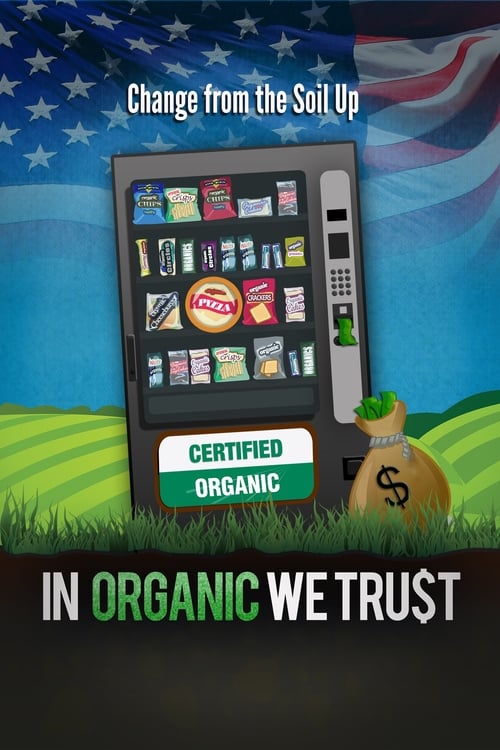Cast
View AllCrew
Director
- Kip Pastor
Producer
- Emma Fletcher
- Kip Pastor
Reviews
n3pal
Easily one of the worst documentaries I have ever seen.
A good documentary plunges deeply into it's topic to arrive at a well supported conclusion. In Organic We Trust is a rambling disorganized fiasco. It makes no effort to prove any of the assertions it makes. Instead, it drifts aimlessly from opinion of opinion. The scientist should explain why pesticides are harmful to children, not the farmhand. If growing organically is good for the soil, describe how. If pesticides are bad for us, describe how they harm us. If corporations are consolidating the farm industry, describe some examples and then give us personal stories of how local farmers have been harmed.
The people on the street, the experts, and Kip Pastor all are unclear on the benefits of organic foods. Terms such as "nutrient rich" and "good for the environment" and "safer". In fact, no supporting evidence is made to confirm any of these assertions. Do organic foods have a higher concentration of nutrients, vitamins, and minerals? This would have been an excellent time for a slick animated graph. Do organic foods preserve the soil. Another opportunity for evidence. Perhaps Kip Pastor just expects us to accept the experts opinions because of their titles and offices? Or perhaps it was just Kip's intellectual laziness.
Watching Kip's vacant eyes stare blankly over the fields of organic barley, made me ponder how much organic celery would sufficiently raise his IQ to make a decent documentary.
Mar 28, 2013
Thematic Analysis
In Organic We Trust represents a fascinating example of Documentary cinema, offering viewers a unique perspective on the human experience and societal structures. The film's approach to its themes demonstrates a creative vision that distinguishes it within its genre.
Director Kip Pastor brings their distinctive visual style to this film, continuing their exploration of themes seen in their previous works while adding new elements. Their approach to pacing and visual storytelling creates a viewing experience that rewards close attention.
Released in 2012, the film exists within a cultural context that continues to evolve with our understanding of its themes. Its reception demonstrates the diverse reactions to its artistic choices and its place in cinema history.
Did You Know?
- The production of In Organic We Trust took approximately 4 months from pre-production to final cut.
- The cast underwent specialized training for 4 weeks before filming began.
- The director insisted on using practical effects whenever possible, reserving CGI for only the most necessary scenes.
- The musical score contains over 80 unique compositions.
Historical Context
- In 2012, when this film is released:
- Smartphones and social media had transformed daily life and communication.
- Streaming services were revolutionizing film and television consumption.
- Streaming platforms were disrupting traditional distribution models and changing how audiences consumed films.
How This Film Stands Out
While In Organic We Trust shares thematic elements with other films in its genre, it distinguishes itself through its unique approach to storytelling, visual style, and character development.
Unlike A Tale of Two Kitchens, which focuses more on action than character development, In Organic We Trust subverts genre expectations by exploring its themes with greater nuance.
While films like The Search for General Tso and Just Eat It: A Food Waste Story explore similar territory, In Organic We Trust stands apart through its distinctive directorial vision and pacing.
This film's unique contribution to cinema lies in its bold artistic choices and willingness to challenge viewer expectations, making it a valuable addition to its genre.
Details
- Release Date: February 12, 2012
Where to Watch










